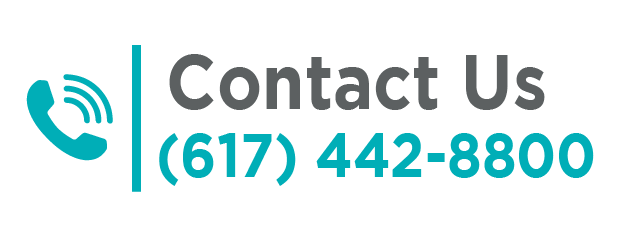Working in tandem with our Health Center and Child and Family Services, our residential programs are seamlessly integrated, ensuring individuals and families find the health care and the community resources critical to making those determined steps beyond our doors. The following four residential programs are based on Dimock’s campus.
Women’s Renewal-CSS (Clinical Stabilization Services)
Women’s Renewal-Clinical Stabilization Services at Dimock provides intensive clinical services for up to 20 women from one to four weeks, addressing the complex needs of women in early recovery. The program supports women who have ongoing issues with substance use, mental health and trauma by offering structure, comprehensive support and, most importantly, hope. The program creates a “Healing Community,” using best practices including trauma informed care, motivational interviewing, harm reduction, music, art, yoga and other expressive therapies.
Our Services
During their time in the program, women are given the space and support to regroup, reflect and refocus their lives. Each week, women receive individual clinical and group therapies that focus on developing effective coping skills and understanding the complex nature of addiction. Together, staff and clients create an effective plan for their continued treatment. The program provides residents with homework to enhance the learning process as well as a “Roadmap to Recovery,” a planning tool to help them prepare for their life in recovery.
Participants also are connected to our Health Center’s OBGYN clinic for preventive care, including annual exams and other needed screenings. Women’s Total Health has supported more than 100 women in the past year, providing critical, often first-time, OBGYN care.
The Program Director oversees a skilled team of Master’s level clinicians, care coordinators, direct care and administrative staff. Women’s Renewal is funded by the Department of Public Health’s Bureau of Substance Abuse Services and third party insurance (Neighborhood Health Plan, Beacon Health and Network Health). Women’s Renewal welcomes women receiving methadone and/or suboxone as part of a medical assisted treatment program, and women who are pregnant.
For more information about Women’s Renewal-CSS, please contact: 617-442-8800 ext. 3028
John Flowers Recovery Home
The John Flowers Recovery Home provides residential support for 21 men for up to six months following completion of a detox program. The program is staffed by a licensed clinician and other case managers. Residents work outside the home, receiving support to secure employment within one month of arrival.
Our Services
We offer men individual and group counseling, case management and family stabilization as well as access to the breadth of comprehensive services in our Health Center and Child and Family Services divisions. Through an alumni network, participants stay connected with peers to provide ongoing encouragement and sharing of experiences to aid their recovery. Former participants in the program find this ongoing support particularly valuable as they progress with their recovery while gradually advancing in their personal and professional goals. The program is licensed and funded by the Department of Public Health’s Bureau of Substance Abuse Services.
Askia Academy
The Askia Academy, named for community activist Nate Askia, serves a maximum of 24 men in ongoing recovery for up to one year. Askia Academy is a healing community providing comprehensive support to men to prepare for self-sufficiency and ongoing recovery.
Our Services
We offer men daily individual and group counseling, family stabilization, job preparation support, educational/vocational program referrals and peer-to-peer mentoring. Men also are referred to our health center for primary and specialized care, and their children are connected to our Child and Family Services for enrollment in Head Start, early intervention and other services. The program is licensed and funded by the Department of Public Health’s Bureau of Substance Abuse Services.
For more information about Askia Academy, please contact: 617-442-8800, ext. 1654
Ruth Kelley Ummi’s House
Named for a former Dimock Director of Behavioral Health, the Ruth Kelley Ummi’s House (RKUH) is based in a brownstone in Roxbury’s nearby Fort Hill neighborhood. The program provides housing and intensive case management to women and children. We serve previously incarcerated women who are living with multiple health, mental health and substance use issues, including HIV/AIDS and bipolar disorder. We welcome pregnant women and women who are on methadone maintenance. The majority of the children are under the care of the Department of Children and Families (DCF). Families live at RKUH from six to 24 months and continue to receive supportive services for an additional six months once they move to their own homes. Past participants also meet in a monthly alumni group for peer support.
Our Services
RKUH is a long-term stabilization program. Families enter the program having experienced significant trauma, in some cases dating back to the women’s own childhoods. The program focuses on moving on and moving forward. Case managers help each woman develop her plan and find the critical resources she’ll need to move on to permanent housing, advance her education, secure employment and access services for her children. The program also offers an Alumni group, which meets on a monthly basis providing peer-to-peer and relapse prevention support. The Department of Public Health’s Bureau of Substance Abuse Services, the City of Boston’s Department of Neighborhood Development and private donations support the program.
For further information about Ruth Kelly Ummis House, please contact: 617-442-6778
“When I came to Dimock, everybody that was here was in a positive mind frame. And because of that positive mind frame, it was hard to be negative…
When I came to Dimock, there was so much recovery. Not just recovery in the sense of AA meetings. But people recovering things in their life–family, employment, housing…”
– David


